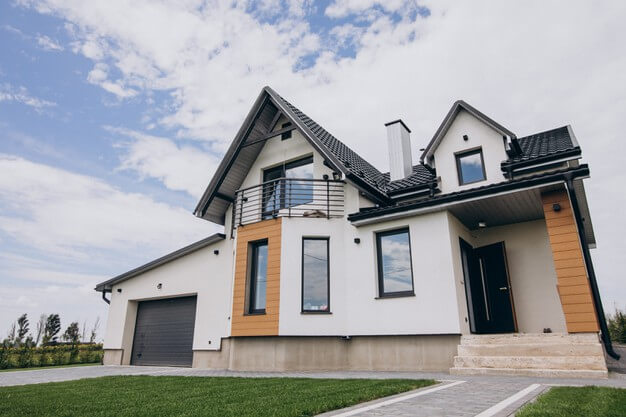There is plenty of reality television shows that detail the chronicles of purchasing a home way below market value due to its dire needs for repairs, investing in renovations, and reselling the home for a profit. This is commonly known as flipping homes, and although it can be lucrative, it can also be a risky, stressful, and timely process.
You may be tempted to get into the game of flipping homes because you have enough money to invest in a property. Flipping houses usually requires you to have some money in reserves to put up-front to secure the home and as well as fund any repairs.
Still, the payoff can be very lucrative, worth your time, effort, and money. According to statistics, the average profit of a home flip last year was $62,300 — an average return of 36.7%!
If you’ve decided you have what it takes to flip a home, look no further. We’re here to help guide you every step of the way, from which areas to look at to which types of blinds to pick for your window renovation. By the end of this guide, you’ll be able to get your journey underway with the confidence that you have the skills and knowledge necessary to tackle any challenge that comes your way — and ultimately secure that fat profit!
1. Find the Right Market for Flipping
The profit you make is largely determined by the housing market in your area. Before you buy that below-market fixer-upper, make sure that you can sell it for double the price once it’s where it needs to be. There is a wide disparity of profits that a home flipper can make. According to studies, here are the best areas you can invest in:
- Tennessee
- Pennsylvania
- New Jersey
- Louisiana
- Colorado
These states were determined by the average profit margin (return on investment) and the average time to flip (the lower, the better). In addition, consider these things when buying or selling real estate.
2. Set a Budget and Stick to It
When it comes to home renovations and flipping homes, your budget can easily go up. How do you ensure you’re still going to come out strong and end up with a profit? Your profit equates to the price you bought the house at plus the costs of fixing it, minus the price you sold the house for after it was all said and done.
Before even buying the house, you should have a set budget in mind. Take a look at the comparables in the area (the cost of nearby homes, their value, and what they sold for) and make sure to accommodate your budget so that when you sell the home, you’re putting enough money into it to elevate the value so that it equates to others in the area, if not more.
Set a budget and try your best to stick to it, but always leave a little bit of wiggle room for any unexpected setbacks.
3. Understand Possible Costs and Risks
Just like with any renovation, there can be some unexpected bumps in the road. This can range from minor setbacks, such as the need to bring an exterminator in, or something major such as a foundational fix that could cost thousands, which you didn’t know of before you bought the house.
Go through a list of possibilities of things that can go wrong or pinpoint possible areas in the fixer-upper that may require extra time or attention once you get a specialist to investigate further. This way, you understand the possible costs and know that the risk is having to spend way more than you initially planned.
4. Renovate Where Necessary and Ignore the Rest
When renovating, pick and choose what needs attention in your fixer-upper. You should focus on aspects of the home that will increase its value aside from the obvious foundational repairs. This includes modern touches such as wood flooring, sleek kitchen cabinets, and an updated bathroom. Don’t get carried away with details such as crown molding or fresh doorknobs. A fresh coat of paint can instantly bring new life into a home. Get rid of the carpet, any signs of age such as mold or holes, and make sure the home is clean.










